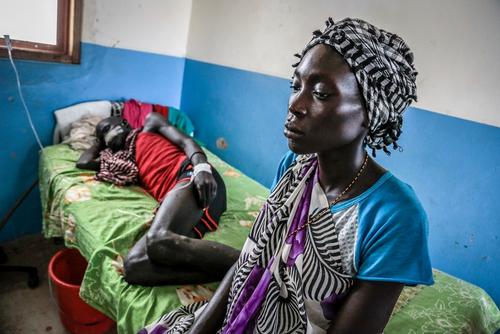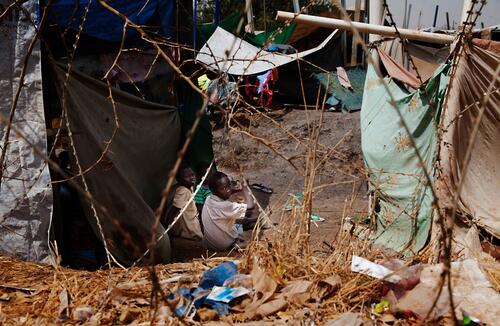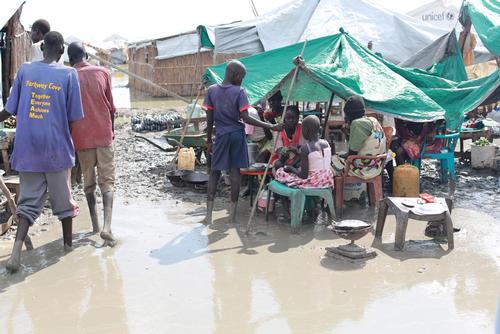Juba – Spiraling violence in South Sudan’s Unity state is having a devastating effect on the civilian population and leading to an unprecedented humanitarian crisis, according to Médecins Sans Frontières (MSF).
MSF teams in Unity state hear daily reports of extortions, abductions, mass rapes and killings, and witnessed villages burnt to the ground and crops looted and destroyed. “As the conflict intensifies, violence against the civilian population is escalating,” says MSF emergency manager Tara Newell. “The civilian population is being subjected to repeated and targeted violence. MSF has not seen this level of violence and brutality before.”
MSF’s compound in Leer, southern Unity, was looted on 3 October, forcing the team to evacuate and the hospital to close for the second time since May. Since then, the vulnerable population in parts of southern Unity has been left without medical care, food support, or other humanitarian assistance.
The violence has forced the population to flee their homes repeatedly and to hide for long periods in the surrounding bush and swamplands. Unable to harvest their crops since the offensives in spring, and desperately short of food, people are surviving on whatever they can forage. Worn down by the repeated episodes of displacement, many people are at the limits of their endurance.
“Patients at our mobile clinics in Leer and surrounding villages described many months of insecurity,” says Newell. “Being in constant flight, people have had no opportunity to harvest their crops. Hiding in constant fear, they have been eating lily roots or leaves to survive.”
Worsening malnutrition crisis
MSF teams had begun to observe a concerning malnutrition situation in Leer and surrounding villages in August and September, when rates of global acute malnutrition were estimated at between 28 and 34 percent. Despite extremely difficult access to the population, on the few days MSF teams were able to assess child health; they rapidly identified 78 children suffering from severe acute malnutrition.
In the past month, as the conflict has intensified and the violence has escalated in southern Unity, the humanitarian and malnutrition situation is likely to have worsened. “Without regular and reliable access to food assistance and nutritional support, those children are likely to have become acutely malnourished,” says Newell. “Those children who were already identified to be severely malnourished are very likely to have died.”
With the ongoing violence, the lack of any humanitarian assistance, the incapacity to protect the civilian population efficiently, and people’s diminishing ability to cope, MSF believes that the humanitarian crisis in southern Unity is on an unprecedented scale. MSF calls urgently for increased protection of the civilian population and for increased safe access for humanitarian organizations in Southern Unity.
MSF has worked in South Sudan’s Unity state since 1988, providing independent, neutral and impartial medical and humanitarian assistance. In the past three months, four MSF staff have been killed and many more are unaccounted for due to the violence in Unity state.






